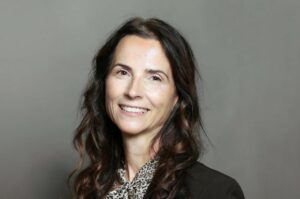Salmon chiefs warn of investment flight from Norway

There was almost universal industry condemnation of the Norwegian government’s plan for a 40% land tax on salmon companies, with Mowi warning investment may move overseas.
The proposal which affects farms with production volumes of more than 4,000 to 5,000 tonnes will be confirmed in next week’s national budget.
The Lerøy Seafood Group denounced the move as “undoubtedly hostile to the industry”, adding: “If approved, it will have a strong negative impact on the entire industry, unless decision makers at the ‘Storting’ [Norway’s national parliament] and people along coastal Norway manage to stop the proposal following the ongoing consultation period.”
It added: “The Board and management in LSG [Lerøy Seafood Group] are in the process of assessing the proposal but do not have a complete overview yet.”
SalMar founder Gustav Witzoe and his family, who are the biggest shareholders in the business, are reported to have lost NOK 7.7 billion (£664m) krone in the first two hours of trading yesterday while the Grieg family saw their share value drop by £94m.
Grieg Seafood said in a stock exchange announcement last night that it is “putting new investments on hold” while it investigates how the proposed tax will affect the company’s business areas and strategy.”
SalMar’s new CEO Linda L. Aase says: “This is a tax on aquaculture companies creating value and jobs along the coast of Norway.
“A tax like this will have significant negative ripple effects for all adjacent industries of the aquaculture industry and the jobs it creates.
“SalMar will come back with additional information on the consequences of such taxation for our group operations once further details of the new tax have been clarified.”

Linda Litlekalsøy Aase, CEO SalMar
Mowi added: “With this proposal, total tax rate for farming of salmon and trout will be 62%. Please note that this is a proposal which must be approved by Parliament.”
Businesses are also voicing their frustration in some of the country’s newspapers.
Mowi CEO Ivan Vindheim told Bergens Tidende: “We are an international company. We operate in 25 countries and have salmon farming in six countries. So if this proposal becomes a reality, we will be forced to look at where to invest next.
“But that is plan B. Plan A is to explain to people and the authorities why this is a particularly bad proposal.”
Alf-Gøran Knutsen, general manager of Kvarøy Fish Farming also told Bergens Tidende: “There is frustration and shock right now, The news has not been received with cheers.
“We have major investments planned and initiated. This will have massive consequences for everything – there is no doubt about that. We simply have to turn around and see what we have to do.”
VG Nett said there was fury at the plan with only the left wing fringe parties in parliament voicing approval.
Land based RAS farms appear to have escaped the blow unless the government has something else up its sleeve in the budget.
One RAS company, Salmon Evolution said: “After carefully studying the proposal and consulting with our legal advisors, it is clear that the proposal for the new resource tax will only – if implemented – be imposed upon salmon farmers holding commercial licenses in sea water.
“As our license is assigned for land-based salmon farming, Salmon Evolution will not be impacted by the proposal which has been sent out for consultation.”
Finance Minister Trygve Slagsvold Vedum (Centre Party) said the government was facing a fiscal gap running into tens of millions of krone: “In reality, we have two ways to close this gap – major cuts in welfare such as pensions, health, police and care for the elderly or through tax increases.”
He pointed out that because of the 4,000 to 5,000 tonnes limit, 70% of farming companies would avoid paying the tax. The five largest companies, which he described as being very profitable, would foot two thirds of the bill.

Jonas Gahr Støre, Prime Minister of Norway
Prime Minister Jonas Gahr Støre (Labour) added: “The community will need more income in the coming years so that we can together protect good welfare benefits for everyone.
“After many years of increasing differences, it is absolutely necessary that those who have the most, and in many cases have received much more, contribute more.”

